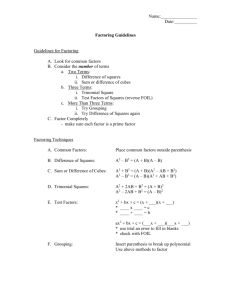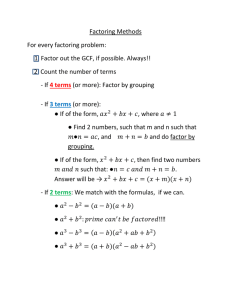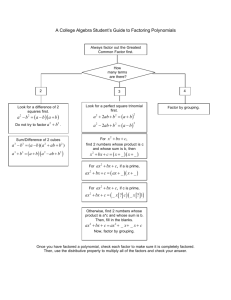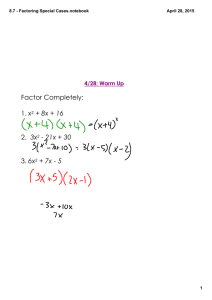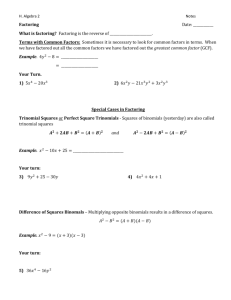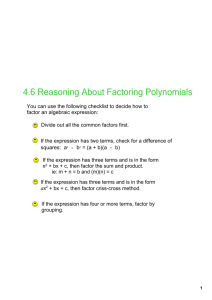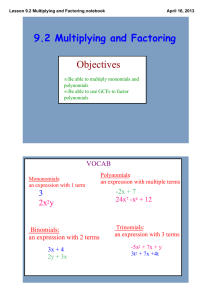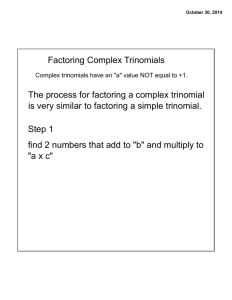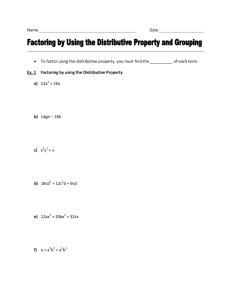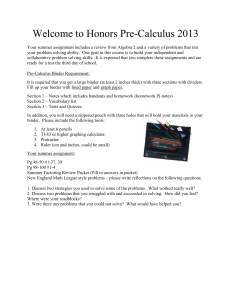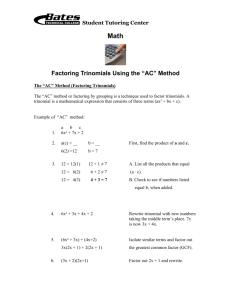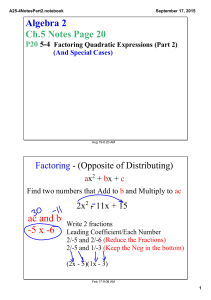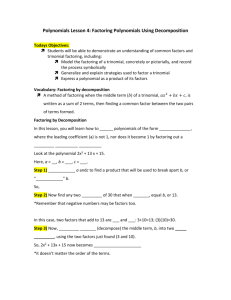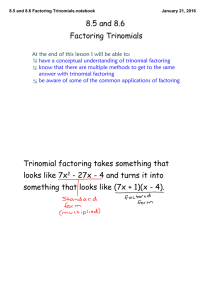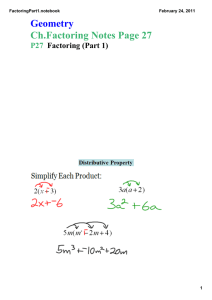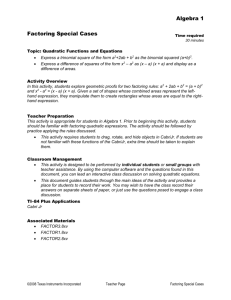14.15 Notes 8.7 factoring special cases complete.notebook
advertisement
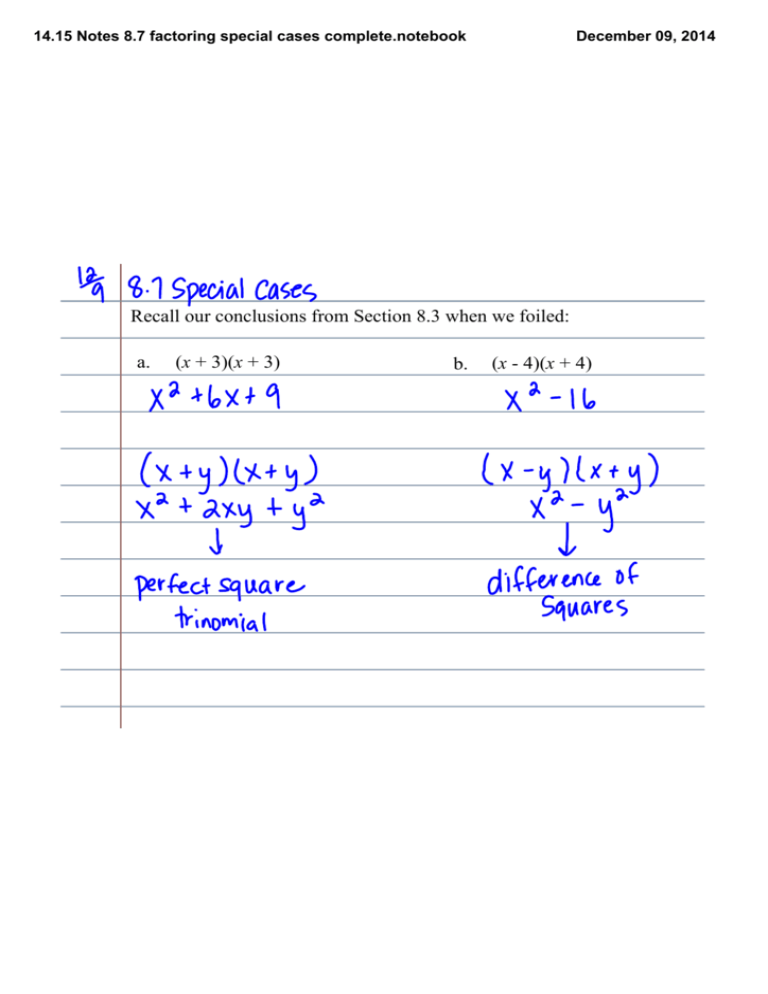
14.15 Notes 8.7 factoring special cases complete.notebook December 09, 2014 Recall our conclusions from Section 8.3 when we foiled: a. (x + 3)(x + 3) b. (x ­ 4)(x + 4) 14.15 Notes 8.7 factoring special cases complete.notebook December 09, 2014 Any polynomial of the form a2 + 2ab + b2 is called a perfect square trinomial. We can factor a perfect square trinomial into identical binomial factors: a2 + 2ab + b2 = (a + b)(a + b) a2 ­ 2ab + b2 = (a ­ b)(a ­ b) So, x2 + 18x + 81 = and 4n2 + 12n + 9 = 14.15 Notes 8.7 factoring special cases complete.notebook December 09, 2014 Any polynomial of the form a2 ­ b2 is called a difference of squares. We can factor a difference of squares into binomial factors with opposite signs: a2 ­ b2 = (a + b)(a ­ b) So, x2 ­ 81 = and 25a2 ­ 49 = 14.15 Notes 8.7 factoring special cases complete.notebook December 09, 2014 Ex 1: Are the following polynomials perfect­square trinomials? If so, factor them. a. n2 ­ 22n + 121 b. x2 + 9x + 81 c. 9a2 + 24ab + 16b2 14.15 Notes 8.7 factoring special cases complete.notebook December 09, 2014 Ex 2: Are the following polynomials differences of squares? If so, factor them. a. x2 ­ 100 b. t2 + 81 c. 9u2 ­ 64v2 14.15 Notes 8.7 factoring special cases complete.notebook Ex 3: Factor completely. Hint: Look for a GCF first! a. 2x2 + 14x + 20 b. y3 + 6y2 + 9y c. 5a2 ­ 20b2 December 09, 2014 14.15 Notes 8.7 factoring special cases complete.notebook Homework: 538/ 2­40 x2 and study for quiz. December 09, 2014
